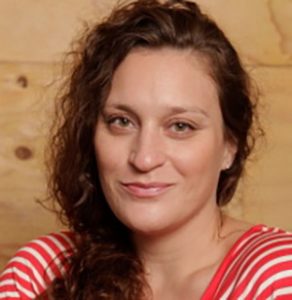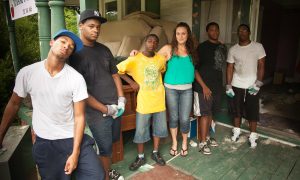I originally came to Bertie County in 2009 to make a short film about the Hive, an alternative school for boys. I fell in love with the place and I saw value in a part of the country that the rest of America seemed to ignore.
After visiting the Hive, I knew there was an important story to be told about the African American boys growing up in Bertie. When talking to the students, I observed that they all had one thing in common: they all felt misunderstood. We planned to follow three young men at the school for one year, but early into filming, the Hive was closed down by the Board of Education because of budgetary shortfalls.
Instead of abandoning the project, we continued to film Junior, Bud, and Dada as they returned to the public high school. I wasn’t sure where the story would lead, but I did know that the perspective of the boys was worth sharing. People would ask me, why are you filming them? First and foremost, I saw their value and I recognized that they were often overlooked and pushed to the side. I also saw that the majority of youth in the community were experiencing similar struggles and I knew I didn’t want to focus on stories of the exception.
Despite appearances and differences in upbringing, their struggles felt familiar to me. At the time, I was married to an African immigrant who faced many of the same challenges that the boys did. He not only faced the negative stereotype of being black and poor, but, despite having a high school diploma, he could barely read. None of this defined him. I knew the strong man he was, when he was in his element. I recognized a similar passion and potential in Junior, Bud, and Dada.
This film has been a labor of love. As a single mother on public aid, I’m not a typical documentary director. My daughter stayed with me in Bertie and came with us on shoots. She was two when I started this film and has grown up with these families, who are now like family to us. Over the last seven years, we have maintained close, trusting relationships with each family in the film. I love them and am honored that they trusted me, gave me an unfiltered window into their lives, and believed what we were doing was important.
In editing this story, there were competing pressures: to fight against stereotypes, to tell an exciting story, to tell a story of unexpected success, and to prove that a filmmaker can communicate an honest story about a culture that is not her own. The truth is, I made a film about three kids that I met and cared about. I knew their story needed telling. The individuals in this story are representative of their community and they matter.



